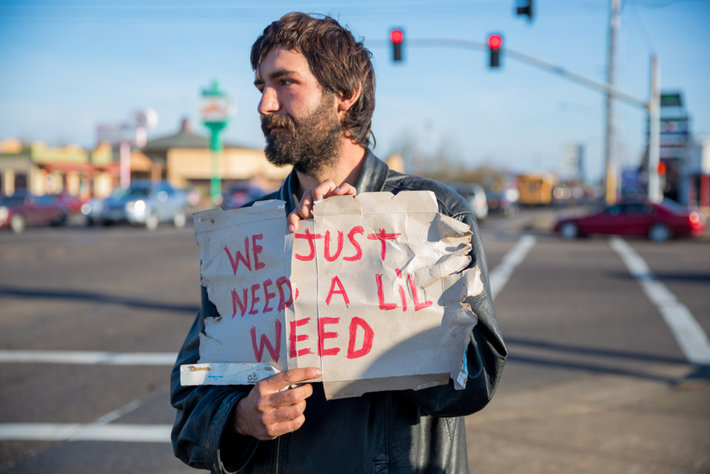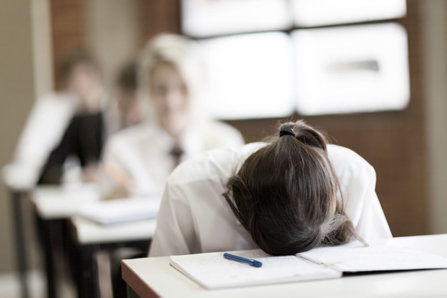Adverse Consequences of Marijuana Use on the Rise in States that Legalized

Just about everything having to do with marijuana is seen as highly controversial. As states continue to legalize its use for recreational purposes, we are beginning to see growing evidence that not all is as it seems. Using marijuana has consequences, and, legal or not, the number of individuals affected by those consequences is growing.
It should not come as a surprise that, according to new findings, states which have legalized marijuana are now experiencing increases in the harmful consequences of marijuana use.
The Legal Use of Marijuana – But at What Cost?
The per capita use of marijuana is going up in states that have legalized it. That much is very clear. The Center for Opioid Epidemiology and Policy at NYU Langone Health in New York City did some research on this subject. Their conclusions were reported in U.S. News.
According to the findings, the numbers of people who have “problematic marijuana use” habits have gone up considerably in states that legalized marijuana use for recreational consumption. Problematic marijuana use means usage patterns that bring on adverse consequences in a person’s life. These can include:
- Increased tolerance of marijuana, requiring more of the substance to get the same experience/result from using it.
- Repeated, failed attempts to quit marijuana use or to reduce consumption.
- Excessive time spent using marijuana.
- Social problems stemming from marijuana use.
- Ignoring other activities (work, school, family, groups, etc.) in order to use marijuana.
Magdalena Cerda, one of the researchers and the director of the Center for Opioid Epidemiology and Policy, commented on the findings for U.S. News. “There are, indeed, important social benefits that legalizing marijuana can provide, particularly around issues of equity in criminal justice. Our findings suggest that as more states move toward legalizing marijuana for recreational use, we also need to think about investing in substance use prevention and treatment to prevent unintended harms, particularly among adolescents.”
“When people begin using marijuana as teenagers, the drug may impair thinking, memory, and learning functions and affect how the brain builds connections between the areas necessary for these functions.”

Cerda has a point, particularly when she speaks about marijuana use and young people. Quoting data published by the National Institute on Drug Abuse, “When people begin using marijuana as teenagers, the drug may impair thinking, memory, and learning functions and affect how the brain builds connections between the areas necessary for these functions.”
The NIDA paper goes on to talk about a study from New Zealand that researched the matter of youth marijuana use. The researchers wanted to find out what young adult marijuana use does to long-term development. The results were pretty concerning.
The research showed that people who started smoking marijuana heavily in their teen years and who engaged in ongoing marijuana use through their teen years and into their adult years tended to lose an average of eight IQ points between the ages of 13 and 38.
And perhaps even more concerning, the research found that this lost mental ability did not “come back” in the individuals who then quit using marijuana as an adult. There seems to be added harm when young people use marijuana.
Marijuana Use and Drugged Driving – One Example of Increasing Harm
Just one adverse consequence of marijuana use (especially in states that have legalized) is drugged driving. Drugged driving is defined simply by the act of driving under the influence of legal or illegal substances, not all that dissimilar from driving under the influence of alcohol. And while driving under the influence of alcohol tends to get most of the media coverage and public focus, drugged driving is now a growing problem that needs our attention.
According to the National Institute on Drug Abuse, even though drugged driving is illegal in every state, about 12 million people drive under the influence of drugs every year. In fact, 43 percent of traffic deaths in 2016 were related to drug use. Drugs, like marijuana, slow reaction time, and impair the accurate judgment of time and distance, perilous when one is trying to operate a vehicle.
It’s pretty clear that, as marijuana legalization has gone up, we are now starting to see more marijuana-related car accidents. Quoting a paper found at the National Conference of State Legislatures, “Detection of marijuana in drivers involved in traffic crashes has become increasingly common. According to the National Highway Traffic Safety Administration, 12.6 percent of weekend nighttime drivers in 2013-2014 tested positive for tetrahydrocannabinol (THC), compared to 8.6 percent in 2007. … NHTSA also reveals that the number of drivers killed in crashes who tested positive for marijuana doubled from 2007 to 2015.”
What Can We Do About It?

It’s essential to educate the populace about the dangers, risks, and consequences of marijuana use. When people know what is at stake from using marijuana, they are far less likely to engage in such use. Now that marijuana is legal for recreational use in 11 states and legal for medicinal use (or at least decriminalized) in more than half of all states, people need to know precisely what the risks and dangers of this drug are. People need to understand why they should not use marijuana.
It is no longer sufficient just to say, “Marijuana is illegal; therefore, marijuana is bad.” (That was never really an adequate explanation, to begin with.) And now that statement is rendered null and void as a majority of U.S. states allow some form of marijuana use to occur within their borders.
There are harmful consequences of marijuana use. Therefore, parents, opinion leaders, schools, mentors, elders, churches, communities, business owners, even state governments should put effort towards informing the public of the harmful effects of marijuana use. Punishing people for using marijuana does not work and has never worked. Now, we need to try a different model, where we educate people about the harmful effects of marijuana use.
And should someone become addicted to drugs and end up with a daily habit of inescapable drug use, we need to help them overcome that habit with the help of a long-term, residential drug rehab program. If you know someone who can’t walk away from marijuana or any other substance for that matter, make sure they get help as soon as possible.
Sources:
- https://www.usnews.com/news/health-news/articles/2019-11-13/cannabis-use-disorder-up-in-states-that-legalized-recreational-pot
- https://www.drugabuse.gov/related-topics/trends-statistics/infographics/drugged-driving
- https://disa.com/map-of-marijuana-legality-by-state
- http://www.ncsl.org/research/transportation/drugged-driving-overview.aspx


 ®
®